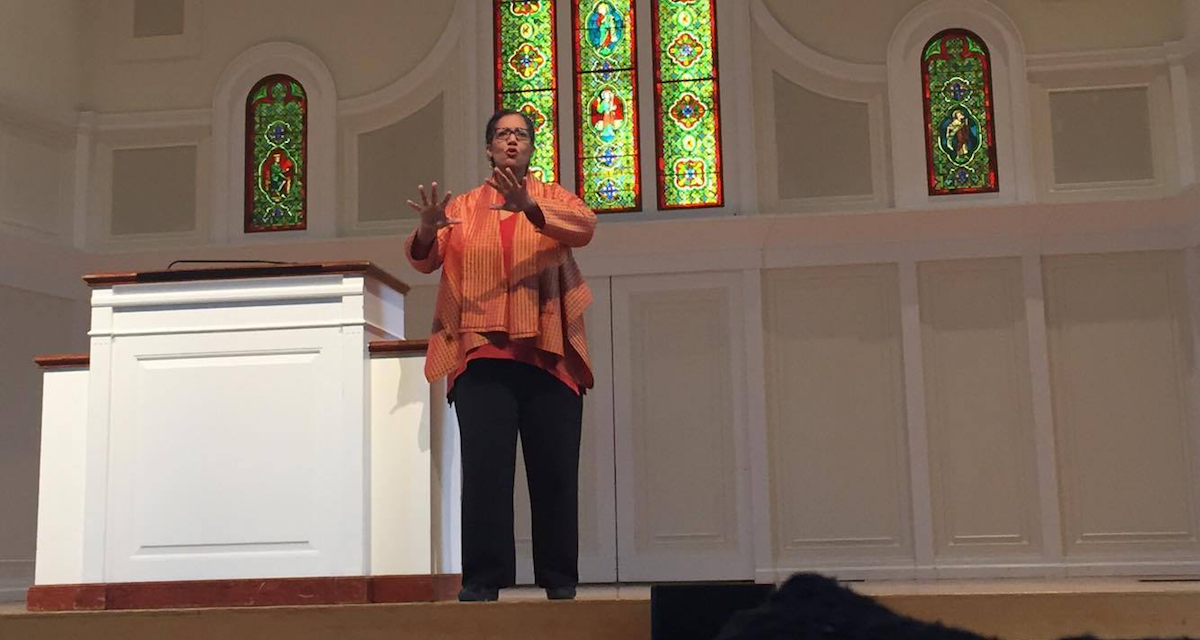Human Rights Week Welcomes Foremost Christian Thinkers on Xenophobia
Imagine a barren, lifeless United Kingdom, Australia, New Zealand and Canada. That collective population of 65 million people is currently displaced by war and persecution across the world—a crisis that Gordon College’s Social Justice Initiative shed light on during their seventh annual Human Rights Week.
Some of the most recognized Christian thinkers on the topic (featured in publications such as Vox, Christianity Today and Sojourners) presented workshops, lectures, Chapel and Convocation talks and small group discussions.
Matthew Soerens, U.S. director of church mobilization at World Relief and a former immigration lawyer, described what extending compassion while honoring the law looks like with undocumented immigrants. Christ tells us to love and welcome our neighbors, even without fully understanding their identity or story, in the same way as the Good Samaritan, Soerens said.
“There’s no qualifications [that say] love your neighbor so long as it’s totally safe, or love your neighbor for so long it’s in your economic interest, or love your neighbor as long as they have legal status,” Soerens said.
The enlightening talks over the course of the week exhorted Christians to extend love in the face of xenophobia (the fear of strangers) and to understand the facts about refugees and immigrants.
For example, over the past 30 years, not a single refugee has taken the life of an American, Jenny Yang, vice president of advocacy and policy at World Relief, said during one of her talks. In fact, the United States has one of the world’s most stringent refugee resettlement policies, in which only 0.5 percent of the world’s refugees make it through the resettlement process, Yang said.
Lisa Sharon Harper (pictured above), chief church engagement officer at Sojourners, continued Soerens’s and Yang’s narrative shift on immigrants and refugees using ideas from another oppressed group of people—the writers of the Book of Genesis. While some say that Moses should be credited authorship, others say that priests emerging from the Babylonian Exile should, Harper said.
“We actually have one of the first commandments that is given in Scripture and that is to migrate—to move over the whole face of the Earth, to cover the Earth,” Harper said. “Why? Because as we do, we are markers of where God rules.”
But “the way that we exercise dominion must be in the likeness of God, not just in our own likeness,” she continued. If one’s humanness is being diminished in any way, Harper said, then that is a good indicator of a place where the Kingdom is not flourishing.
In our 21st century landscape that Harper sees as a “repetition of time,” she asks, “Who does have the right to exercise dominion? Who has God called to exercise dominion on this land?” It only takes a trip back to Genesis to know that the answer is all of us—the neighbor and the stranger.
By Dan Simonds ’17, communication arts
 The Bell
The Bell